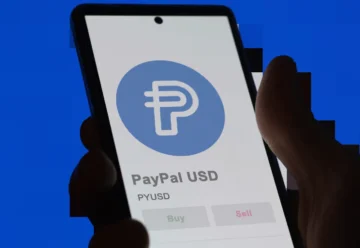South Korea’s Crypto Market Statistics for 2021

South Korea’s regulator presented interesting data that reflects the state of the local crypto market.
The Financial Services Commission of the Republic of Korea (FSC), citing a study by the Korean Financial Intelligence Unit (KoFIU), provides data from a comprehensive survey of 29 virtual asset service providers. The survey was conducted to better understand the local cryptocurrency market based on statistics from individual business operators.
Some key figures:
- South Korea’s cryptocurrency market grew to 55 trillion KRW (~$45.9 billion) in 2021.
- A total of 24 licensed crypto exchanges are operating in the country. The daily volume of transactions they processed averaged 11.3 trillion KRW (~$9.4 billion).
- Local crypto exchanges had an operating profit of 3.37 trillion KRW (~$2.8 billion), nine entities reported operating loss.
- BTC and ETH account for only 27% of cryptocurrency sales for fiat, compared to 59% of the global market average. 95% of all crypto transactions for fiat are conducted in KRW. This is a consequence of the law passed in 2021, which obliged local cryptocurrency exchanges to carry out mandatory KYC identification of traders and open accounts with certified banks. The implementation of the law resulted in about 200 small and medium crypto exchanges leaving the market and banks refusing to cooperate with them.
- 15.3 million users are registered on crypto exchanges. In 2021, only 5.58 million of KYC-registered users were active. Of these, about 3.1 million users have less than 1 million KRW (~$850) in assets. At the same time, 15% of traders have more than 10 million KRW (~$8.500) in assets. The most active category of crypto traders is people between 30 and 40 years old. Men, in general, make up the majority of crypto users (67%).
South Korea is considered one of the strictest cryptocurrency jurisdictions after passing several laws in 2021, but this has not affected the dynamics of the local crypto market. We have previously written about the South Korean government’s ambitious plans to develop the metaverse sphere. Also, South Korea can be one of the first countries which have adopted tax rules for NFTs.











